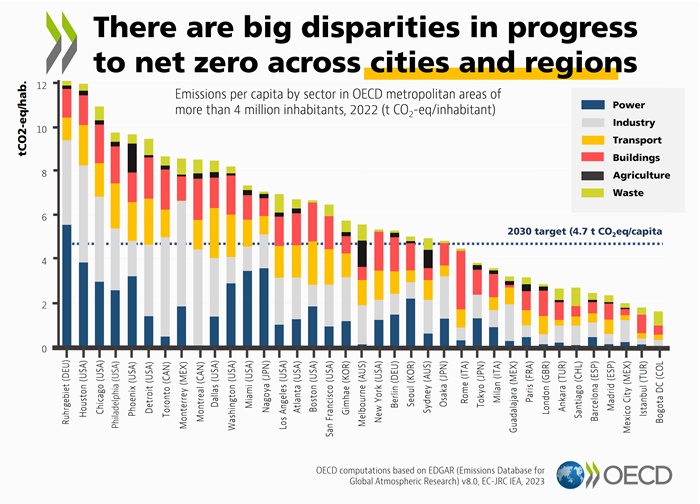Environment

A Territorial Approach to Climate Action and Resilience
Global warming is likely to reach 1.5°C as early as in 2030, with current climate
action falling short of meeting the Paris Agreement goals and a mounting risk of tipping
beyond the ability of human societies to adapt. Building on broader OECD work on climate,
this report proposes a new OECD territorial climate indicator framework and demonstrates
that the potential to mitigate greenhouse gas emissions, adapt to climate impacts
and address vulnerabilities varies across different territories. The report also presents
a policy framework of 9 recommended actions to help decision makers unleash more effective
climate action and resilience, both by integrating a territorial approach into national
and subnational climate policies and by mainstreaming climate objectives into urban,
rural and regional policies. The report summarises the analysis into a checklist for
national and local governments to implement a territorial approach to climate and
resilience policies, as well as a compendium of 36 best practices from cities, regions
and countries from all around the world.
Published on December 06, 2023
In series:OECD Regional Development Studiesview more titles
TABLE OF CONTENTS
| Preface | |
| Foreword | |
| Abbreviations and acronyms | |
| Executive summary | |
| Why adopt a territorial approach to climate action and resilience? | |
| Introducing the OECD territorial climate indicator framework | |
| Analysing local greenhouse gas emissions, climate impacts and vulnerabilities across OECD countries: Key findings | |
| Assessing the implementation of a territorial approach to climate action and resilience in OECD countries |
Powered by OECD iLibrary
